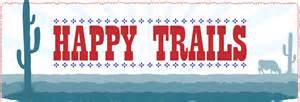Wow, where do I start!?
First let me say that I only like to give credit when it’s due. My thoughts on Professor Freberg are truthful and from the heart. When I initially transferred to the University of Louisville, Dr. Freberg taught me my first semester. Strategic Communications was probably the smallest class I had every been a part of and I don’t believe enrollment even reached 10 people. However, enrollment was most likely this low due to it being an 8:00 AM class. College kids avoid these class times like the plague! Dr. Freberg told our class it might be cancelled due to low enrollment. When I look back at the situation I am so glad that Strategic Communications did not cancel. That cancellation would have changed my college learning experience substantially!
Dr. Freberg has always aligned her assignments with networking possibilities and real world application. In Strat Comm we had to do an interview assignment where we reached out to potential employers in an attempt to shadow their profession. I was able to make lifelong connections through that assignment. Unfortunately the division of the company I shadowed had their internship offer to me vetoed by the HR department. However, I still am in contact with those professionals and the team has even invited me to lunch with them. Dr. Freberg had us do another assignment in Strat Comm that involved creating a Integrated Marketing Plan for our company of choice. This assignment doubled as a great resume example piece to showcase to potential employers.
I was so impressed by Dr. Freberg my first semester that I immediately sought her out again. Sadly, I was not able to align one of Dr. Freberg’s classes with my schedule the next semester. However, I pounced on the opportunity to get in Dr. Freberg’s Social Media class. I was denied an internship for credit in the past by my university because I had not studied social media. Not only was I interested in the subject of social media, but one of my favorite professors taught the class as well! Prior to Dr. Freberg’s SM class I was extremely ignorant about social media utilization and social media management. Previously I was not on Twitter, I did not have running blog, I was foreign to Snapchat, I thought Pinterest was just for women and I was intimidated by LinkedIn. Dr. Freberg taught me how to utilize Twitter like a professional. I learned that Twitter is the platform to establish yourself as a thought leader and influencer. Dr. Freberg showed us why we needed to blog and how blogs can help us establish unique personal voices in our career fields of interest. I learned how to pitch a Snapchat plan to a company. Numerous companies still do not take advantage of Snapchat yet and I now feel confident in my ability to convince a company why they need it. However, I still am learning something new everyday. I received the opportunity to work in a team setting on pitching a social media campaign to the Louisville Convention & Visitors Bureau. This is the most detailed and elaborate group assignment I have done in my college career, but I welcome this challenging opportunity (We present April 29th!). The campaign assignment has taught me how to apply social media, research, analytics, and strategies/tactics to a real-life organization. I was able to evaluate my online reputation and develop a unified image across all of my social media networks. I obtained a Hootsuite University certification that I can add to my resume! I feel like this certification will help me stand out in career fields involved with social media. I learned how to create an infographic along the way as well. I look forward to taking desktop publishing next semester in order to improve my digital design capabilities even further.
All of those previously listed elements of #Freberg15 were awesome, but I enjoyed joining a flowing professional community the most. Dr. Freberg has connected us with considerable amounts of professionals that are experts and thought leaders in their career fields. I have never been blessed with so many valuable networking connections in my entire lifetime as I have in #Freberg15 ! When I move on to the next step in my life journey after college, I hope to always remain in contact with Dr. Freberg. I still encourage everyone to follow Dr. Freberg on Twitter. Make sure that you check out Dr. Freberg’s website and blog as well. I feel that we all can learn something from Dr. Freberg.
Farewell #Freberg15, I hope we can all stay in touch and continue to pay it forward like Dr. Freberg!
So Long &

